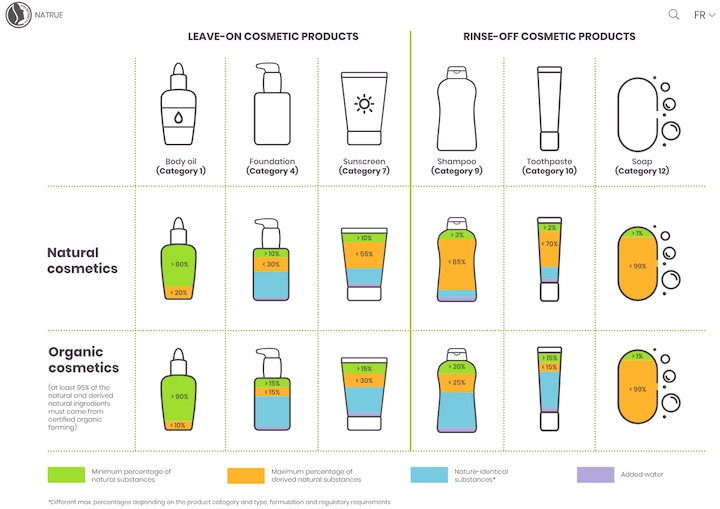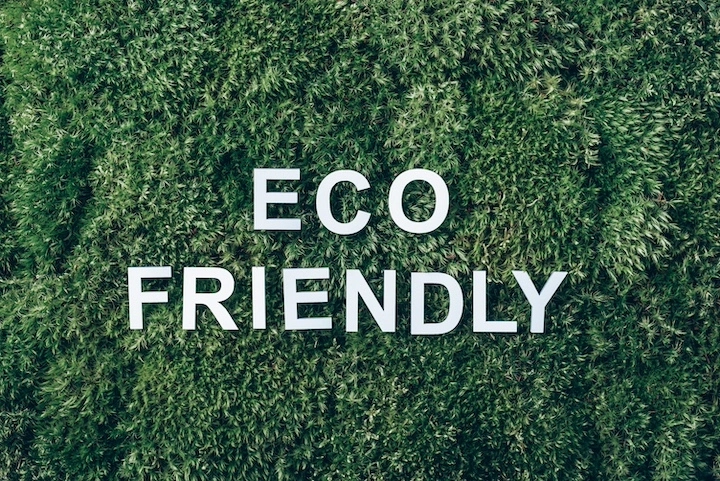
23 mars 2024
In an era where environmental consciousness continually ascends, consumers are increasingly discerning about the impact of the products they acquire. Whether for cosmetics, soaps, perfumes, veterinary products or even horticulture, the utilisation of plant extracts derived from organic agriculture has become a hallmark of quality and reverence for the environment.
Confronted by this increasing demand, professionals from all sectors are turning to eco-labels to certify their products containing plant extracts. But in this labyrinth of labels with criteria sometimes intricate, how can one navigate? What are the veritable requirements behind each certification? And above all, how to embark upon these procedures without misstep?
Herein lies the expertise of Landema.com, a French purveyor of plant extracts of the highest caliber. With its experience in obtaining eco-certifications, the company imparts its knowledge to guide you through this demanding process. In this article, we shall unveil all the secrets to choosing the label that suits you, meeting the criteria and fully benefiting from the advantages of an organic certification.
Ready to take the leap into eco-responsibility? Follow the guide!
Key points to remember:
Here are the 3 main points to remember from this article:
- Eco-labels have become essential for professionals wishing to offer natural and environmentally friendly products containing plant extracts. They allow them to meet the growing consumer demand for healthier and more sustainable products.
- There are many eco-labels (AB, COSMOS Organic, Natrue, etc.), each with its own criteria and requirements. To obtain certification, professionals must follow a rigorous process: compliance audit, preparation of a complete file, validation by a certifying body. This represents an investment but guarantees the credibility of the approach.
- Beyond the environmental aspect, an eco-certification brings many business advantages: reassurance for consumers, enhancement of the brand's commitment, access to new markets, guarantee of the quality of the plant extracts used. It is therefore a real lever for development and differentiation for professionals. Choosing a certified plant extract supplier like Landema.com allows you to secure your approach.
In summary, despite the complexity of the eco-label landscape, obtaining an eco-certification for products containing plant extracts has become strategic for any responsible professional wishing to combine quality, transparency and respect for the environment. It is a guarantee of trust for consumers and a lasting competitive advantage.

1. Understanding the main eco-labels for products containing plant extracts
Faced with the growing consumer demand for more natural and environmentally friendly products, many eco-labels have emerged in recent years. Each of them has its own criteria and requirements, but they all share the objective of promoting sustainable practices and responsible use of natural resources.
But what exactly is a label? According to the official definition, a label is a collective mark represented by a name, logo, or other distinctive sign. It can be used by different brands that comply with the specifications associated with that label. Its role is to guarantee and highlight specific characteristics of the labeled product.
There are two main categories of labels: public labels and private labels. A public label, such as the Organic Agriculture (AB) label, is governed by regulations and recognized by the authorities. Its attribution is independently controlled by accredited certification bodies.
Private labels, on the other hand, are established by non-governmental organizations such as associations, companies, or producer groups. Among them, there are controlled labels, such as COSMOS or Nature & Progrès, whose compliance with the standard is verified by an external and independent certification body, often accredited for greater reliability. Conversely, uncontrolled private labels, such as the mentions "Botanically and Biochemically Defined Essential Oil" (HEBBD) or "Chemotyped Essential Oil" (HECT), are self-declarative and do not involve independent control.
Thus, to fully understand the value of an eco-label, beyond its public or private nature, it is essential to examine in detail its specifications (what it guarantees) and its control and attribution methods (who verifies it).
Here is an overview of the main labels you may encounter on products containing plant extracts.
Organic Agriculture (AB) and Euro-leaf labels
This essential label guarantees that the products come from organic agriculture, which is governed by European regulations, without the use of synthetic chemical pesticides or artificial fertilizers, and without GMOs. For plant extracts, this means that the plants have been grown with respect for the environment and biodiversity.
This label mainly concerns the following product categories:
- Unprocessed plant products
- Live or unprocessed animal products
- Processed agricultural products for human consumption
- Processed agricultural products for animal feed
- Wine
Companies wishing to apply for this label must choose a certifying body, such as Ecocert, Qualisud, Bureau Veritas, etc. (in France) and register with the Agence BIO (French Agency for Organic Farming).
It should be noted that the Agence BIO website also has an official directory of all AB-labeled French companies.
COSMOS
Specific to cosmetic products, this standard covers all aspects of the sourcing, manufacturing, marketing and control of these products.
It is divided into 2 levels:
- Organic certified cosmetic products, COSMOS ORGANIC, which must contain at least 20% organic ingredients for finished products (as an exception, for rinse-off products, non-emulsified aqueous products and products containing at least 80% minerals or ingredients of mineral origin, at least 10% of the finished product must be organic),
- and natural certified cosmetic products, COSMOS NATURAL, for which it is not mandatory to use organic ingredients.
It should be noted here that ingredients such as water, minerals and ingredients of mineral origin cannot be counted as organic ingredients because they are not cultivated.
This standard also imposes restrictions on authorised substances and prohibits animal testing.
As with the AB/Euro-leaf labels, companies wishing to be certified must choose a certification body such as Bureau Veritas, Ecocert, Cosmecert… (in France).
Natrue
Recognized internationally but a little less well-known than the Cosmos standard, the Natrue label certifies natural and organic cosmetics and is committed to ensuring ingredient clarity, product transparency and against greenwashing. It also offers 2 levels of certification, for natural or organic cosmetic products:

Source: https://natrue.org/why-us/what-makes-the-natrue-label-unique/
Nature & Progrès
One of the strictest labels, the French Nature & Progrès (which prefers the term "mention" rather than label), requires that 100% of the ingredients come from organic agriculture. It also excludes the use of GMOs, nanoparticles and ingredients of petrochemical origin.
The particularity of this mention is that it is awarded by the Nature & Progrès association which brings together both professionals and consumers. It can be requested by producers and processors of agricultural, food and cosmetic products.
Fair for Life
In addition to environmental criteria such as respect for ecosystems with the promotion of biodiversity and sustainable agricultural practices, this label emphasises social responsibility and fair trade. Applicable in the fields of agriculture, manufacturing and trade, it guarantees good working conditions and fair remuneration for producers. Labeled companies are indeed committed to contractually purchase agreed quantities at higher prices than market prices.
Ecocert is the only Fair for Life certifying body in France.
It is important to note that each of these labels has its own detailed specifications, covering all aspects of the production, processing and packaging of products. Some labels recognise the specifications of other labels, thus making it possible to certify a product that contains ingredients certified by another label: for example, the AB/Euro-leaf certification is recognised by COSMOS ORGANIC, Natrue and Nature & Progrès.
Some independent certification bodies, such as Ecocert or Cosmebio, are responsible for verifying compliance with the requirements of each label.

2. Key steps to obtain certification
Obtaining an eco-label for your products containing plant extracts is no small feat. It involves following a rigorous process and scrupulously adhering to the specifications defined by the certifying bodies. Here are the main steps to follow:
Choose the most suitable label
First of all, you must determine which eco-label best suits your business, values and objectives. Each label has its own specific criteria and requirements in terms of percentage of organic ingredients, authorised manufacturing processes, packaging, etc. Take the time to contact and study the different standards to make the most judicious choice.
Conduct a compliance audit
Once the label has been chosen and your commitment file signed, an in-depth audit of your activity is necessary to assess your level of compliance with the requirements.
This audit covers several aspects: sourcing of raw materials, manufacturing processes, waste management, working conditions, etc. It helps identify areas for improvement before submitting your certification application.
Prepare a complete file
To be processed, your application file must often include several supporting documents: detailed technical sheets on the composition of your products, documentary evidence on your processes and suppliers, action plan to correct identified non-conformities, etc. The preparation of this file is a crucial step that requires rigor and transparency.
Obtain validation from the certifying body
After examining your file, the certifying body generally carries out one or more on-site visits to verify the compliance of your facilities and practices.
In case of validation, you obtain the precious eco-label that will allow you to enhance your products and use the label's logo on your products and communication materials.
Be careful, this process can take several months depending on the complexity of the products, manufacturing processes and the operation of the certifying body. If this is your first application, you will not be able to use the chosen label until you have officially obtained it.
Regular checks are then carried out to ensure that you maintain your commitments over time.
Landema.com provides you with all the regulatory and technical information and official documents directly on our website and on our product sheets. Our Customer Service is at your disposal for any questions or additional information needs. Moreover, we guarantee the quality and origin of all our products and indicate in total transparency the country of harvest, country of manufacture and certificate of analysis.
Visit https://landema.com/certifications to find all of Landema's certificates.

3. Key advantages of eco-certification for your business
Beyond respect for the environment and the promotion of sustainable practices, obtaining an eco-label for your products containing plant extracts offers you many competitive advantages.
Reassurance and transparency for consumers
Nowadays, consumers are increasingly sensitive to the environmental impact of the products they buy. A recognized eco-label is a guarantee of trust and transparency that reassures them about the quality and safety of your products. This strengthens their loyalty and their propensity to recommend your brand.
Enhancing your eco-responsible approach
By proudly displaying an eco-label, you highlight your commitment to sustainable development. This allows you to differentiate yourself from your competitors and convey a positive image in line with current societal expectations.
Access to new promising markets
More and more consumers, especially millennials, are willing to pay more for environmentally friendly products. With an eco-certification, you will be able to conquer these expanding market segments and grow your business.
Certified plant extracts as a guarantee of quality
By choosing labeled plant extracts from a supplier like Landema.com, you ensure that you are using the highest quality ingredients with preserved properties. This enhances the effectiveness and perceived value of your finished products.
Eco-certification is therefore a powerful growth lever that will allow you to gain consumer trust, enhance your brand and access promising business opportunities.

4. How much does an eco-certification cost?
Obtaining an eco-label for your products containing plant extracts represents a significant but often quickly profitable investment. Costs vary depending on the chosen label, the size of your company and the complexity of your file (number of products, ingredients, suppliers, sites to be checked, etc.), but here is an overview of the main expenses:
Registration and file opening fees
For some labels, you must first pay registration fees that generally range between €300 and €1000. File opening fees of up to €500 are often added.
Audit and certification costs
The bulk of the costs lies in the audits carried out by the certifying body. Depending on the size of your company and the number of products to be certified, the amount can vary from €500 to €10,000 per year. Auditor travel expenses may also apply.
Annual fees
Once certification is obtained, most labels will require you to pay annual fees, calculated as a percentage of your turnover related to certified products. This percentage generally ranges between 0.5% and 1.5%.
Testing and analysis fees
Depending on the requirements of the label, you may have to carry out additional tests and analyses on your products, for example to verify residual levels of pesticides or heavy metals. These analyses in an approved laboratory generate additional costs.
In total, for a small company, the cost of an eco-certification can amount to €500 - €5,000 for the first year, then €500 - €3,000 for the following years. For large groups, this budget can easily double or even triple.
This investment may seem significant, but it will allow you to enhance your products, gain credibility and access promising new markets. Numerous studies show that consumers are willing to pay more for labeled products, thus ensuring a rapid return on investment.

5. Landema.com, your trusted partner for certified plant extracts
At Landema.com, a subsidiary of the Biolandes Group created in 1980, we take pride in our expertise and know-how in the field of high-quality plant extracts. Since our launch, we have been committed to providing our customers with natural and organic ingredients that meet the requirements of the strictest eco-labels.
A wide range of organic and eco-friendly plant extracts
Our catalog includes a vast range of certified plant extracts, derived from plants carefully selected for their properties and benefits. Whether you are looking for essential oils, absolutes, vegetable oils or macerates, we have the natural extract suited to your needs.
Secure and sustainable sourcing
We have our own farms where we distill our essential oils. We also work closely with a network of trusted producers who share our values of respect for the environment and quality.
Each batch of plant extracts undergoes rigorous controls at our site in the Landes region to guarantee its purity, traceability and compliance with the specifications of eco-labels.
The regulatory documents for each of our natural extracts are available online as soon as you log into your customer account, and the analysis bulletin for your extracts is accessible as soon as you make your purchase.
Expertise at your service
Our team of specialists is at your disposal to guide you in choosing the plant extracts best suited to your formulations. We provide you with all the technical and regulatory information on our products, as well as personalised advice to optimise their use.
At Landema.com, we are convinced that the use of certified plant extracts is a guarantee of quality and effectiveness for your finished products. By choosing to work with us, you benefit from our expertise, our commitment to a responsible and sustainable approach, not to mention formats suitable for professional use and fast delivery.

Conclusion
Eco-labels for plant extracts have become essential for professionals wishing to offer natural, healthy and environmentally friendly products. By understanding the requirements of each label and following the key steps of the certification process, you will be able to enhance your eco-responsible approach and meet the growing expectations of consumers.
Remember that eco-certification is much more than a simple administrative formality. It is a real lever for the development of your business, which will allow you to stand out in an increasingly competitive market and build customer loyalty in search of transparency and authenticity.
At Landema.com, we are by your side to accompany you in this virtuous approach, driven by our shared convictions in favor of the planet. Thanks to our expertise and the quality of our certified plant extracts, we will be a partner of choice for the success of your eco-responsible products. So, are you ready to take the step towards eco-certification?
To further explore the subject, you can consult the following reference sites:
https://agriculture.gouv.fr/la-certification-en-agriculture-biologique (in French only)
https://www.cosmos-standard.org/en/
https://natureetprogres.org/?Accueil (in French only)
Items that could
interest
Our essential oils
will simplify your life
FAQ
As a customer of the Landema website, did you know that we also have a physical store? If you live in the Landes, in New Aquitaine or are planning to stay there, do not hesitate to visit us! We are located in Le Sen, on the Biolandes site, very close to Labrit, Roquefort, and Mont-de-Marsan, in the heart of the Landes de Gascogne regional natural park.
Essential oils are natural aromatic substances extracted from plants. They are often used in aromatherapy for their health and wellness benefits. Essential oils can be extracted from different parts of plants, such as leaves, flowers, barks, roots or seeds. The use of essential oils dates back to ancient times, where they were used for their medicinal properties and to perfume cosmetics and skincare products.
Landema invites you to discover our product range composed of essential oils, absolutes, vegetable oils, macerates or hydrosols. Our catalog will grow over time, stay informed by subscribing to our newsletter.
We invite you to discover our practical guides and our blog where you can discover our advice and our cases of use of essential oils.
Your wishlist
You must be logged in to post a comment.
Login, or create an account
There is no comment for this article yet